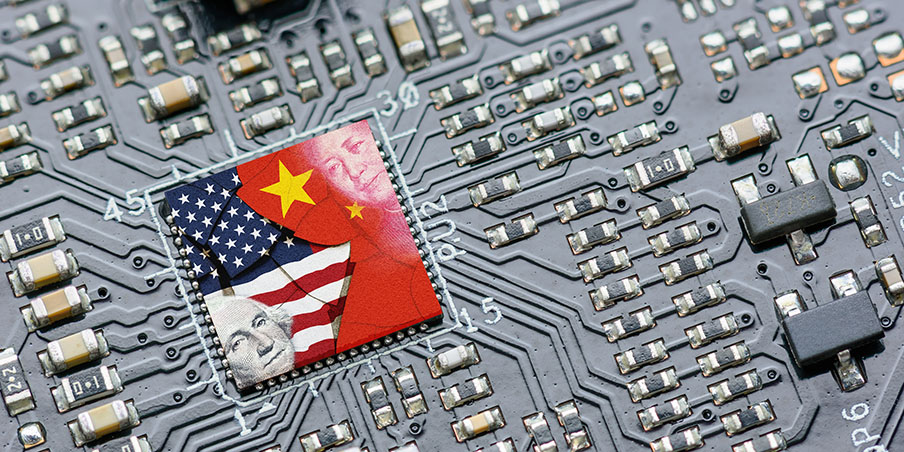
China has launched a full-fledged counterattack against the U.S.-led export restrictions aimed at curbing the growth of China’s high-tech industries. According to reports, the Chinese government has been revising the “Catalogue of Technologies Prohibited and Restricted from Export” since late last year to include “Rare Earth (neodymium, samarium cobalt) Elements” manufacturing technologies for magnets, which are a key component of high-performance motors. China has also requested that the World Trade Organization investigate whether the United States, Japan and the Netherlands, which banned the export of high-tech semiconductor equipment to China, violated World Trade Organization rules. The other two countries seem to be in the process of filing a complaint with the WTO following the lead of the United States.
The United States is leading efforts to exclude China from the high-tech industry’s supply chain. Representative examples of this effort include export regulations on semiconductor equipment, with attempts to draw in South Korea, and the Semiconductor Act and Inflation Reduction Act, which seek to restructure global markets for semiconductors, electric vehicles and batteries through corporate subsidies. China’s rare earth card may be aimed at neutralizing this offensive by controlling key raw materials for high-tech industries. In the case of rare earth magnets alone, China’s market share for key components of advanced products, such as electric cars, airplanes, robots and weapons, is around 80-90%. As the world’s largest producer of rare earth elements, China also possesses 90% of the refining capacity and has the potential to deploy various resource weaponization strategies.
As U.S.-China relations deteriorate following Taiwanese President Tsai Ing-wen’s visit to the U.S., China is likely to increase its level of economic retaliation for the time being. In a foreign ministerial meeting with Japan earlier this month, China openly criticized Japan for aligning with the United States and called on Japan to oppose export restrictions on semiconductors. China referred to Japan as “becoming a lackey of [the] evil (United States).”
It is concerning that these conflicts are occurring in areas where we are leading the market. Although the government announced a “Strategy for Securing 10 Core Minerals” last month and formed a “Minerals Security Partnership” with 12 countries last year, it will be challenging to quickly reduce our heavy dependence on imported rare earth minerals, which currently stands at around 70%. Thus, there is a need to diversify our sources of mineral imports in the mid to long term, while also making economic and diplomatic efforts to alleviate the impact of individual measures.

Leave a Reply
You must be logged in to post a comment.